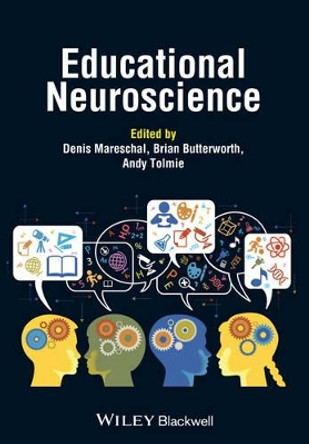Description
About the Author
Denis Mareschal obtained his first degree from King's College Cambridge in Natural Science with a specialisation in physics and theoretical physics. He then went on to obtain a Masters in psychology from McGill University with a thesis on the computational modelling of cognitive development. Finally, he obtained a DPhil in Psychology from the University of Oxford for a thesis combining neural network modelling and the experimental testing of infant-object interactions. He took up an initial lecturing position at the University of Exeter (UK) in 1995 and moved to Birkbeck College University of London in 1998 where he has been ever since. He was awarded the Marr Prize in 1995 by the Cognitive Science Society (USA), the Young Investigator Award in 2000 by the International Society on Infant Studies (USA), and the Margaret Donaldson Prize in 2006 by the Developmental Section of the British Psychological Society. He was made professor in 2006. Paul Quinn earned an ScB degree in Psychology with Honors and graduated Magna Cum Laude and Phi Beta Kappa from Brown University in 1981. He also received a PhD in Psychology from Brown in 1986. Quinn taught previously at the University of Iowa (1986-88) and at Washington & Jefferson College (1988-2003) before moving to the University of Delaware as Professor of Psychology in 2003. Quinn has been named a Fellow by the American Psychological Association (2004) and Association for Psychological Science (2007). He is interested in understanding the developmental emergence of synthetic cognitive abilities with a particular focus on the mechanisms by which human infants group (1) elements to form perceptual wholes, (2) objects into category representations, and (3) relations among objects into concepts. Quinn's research has been supported by the National Institutes of Health and the National Science Foundation, and has resulted in over 120 journal and book chapter publications. Stephen Lea holds MA and PhD degrees from the University of Cambridge, and has worked at the University of Exeter since 1976, being promoted to full professor in 1990. His PhD work was on decision-making in rats, and he was an early contributor to the field of animal cognition, which was then just beginning to emerge. Within that field, he is well known for his work on concept learning in birds, but he has also published on a range of topics in behavioural ecology, on subjects ranging from laboratory studies of hoarding in hamsters to field studies of diving in cormorants. In addition he was one of the founders of the modern movement in economic psychology, and is well known for his work on the psychology of money and debt. He has long experience of voluntary work with children and young people, and is a local (lay) preacher for the Methodist Church
Reviews
To a large extent cognitive, developmental, and comparative psychologists have pursued the study of concepts independently, with little attempt at integration between these disciplines. In this important edited collection, contributions from the leading experts detail the phylogenetic and ontogenetic origins of human adult concepts and push towards a coherent overall perspective. The volume will be essential reading for students, academics, and researchers seeking a unitary perspective on the origin of human adult concepts * Professor Mark H. Johnson, Director, Centre for Brain and Cognitive Development,University of London *
This book focuses on a provocative question: what, if anything, is unique about human concepts? The authors-leaders in cognitive, developmental, and comparative psychology- provide an important push towards integration of disparate perspectives. Although it is difficult enough to study any one of these areas, the combination of the different disciplines provides a different outlook on the possible influences of relations, language, culture, and evolution. This is a stimulating, accessible, edited volume that will help students and researchers to better understand the question and the possible answers * Professor Brian H. Ross, Department of Psychology, University of Illinois *
This edited volume is an exceptional delight to read. It is a thoughtful and compelling collection of chapters from today's top scientists examining human categorization from a wide variety of theoretical and comparative perspectives. Individuals from any number of areas should find this diverse material extremely interesting and important in advancing their understanding of this fundamental and important aspect of cognition. Beyond selecting an outstanding group of authors, the editors have thoughtfully provided the scientific foundations for the chapters and, more importantly, included an integrative summary that brings the different perspectives included in this volume into a common interdisciplinary focus. In sum, this volume is an important advance and is highly recommended for all interested in the fundamental nature of human and non-human thought * Professor Robert Cook, Avian Visual Cognition Lab, Department of Psychology, Tufts University *
Book Information
ISBN 9780199549221
Author Denis Mareschal
Format Paperback
Page Count 416
Imprint Oxford University Press
Publisher Oxford University Press
Weight(grams) 623g
Dimensions(mm) 233mm * 156mm * 23mm




